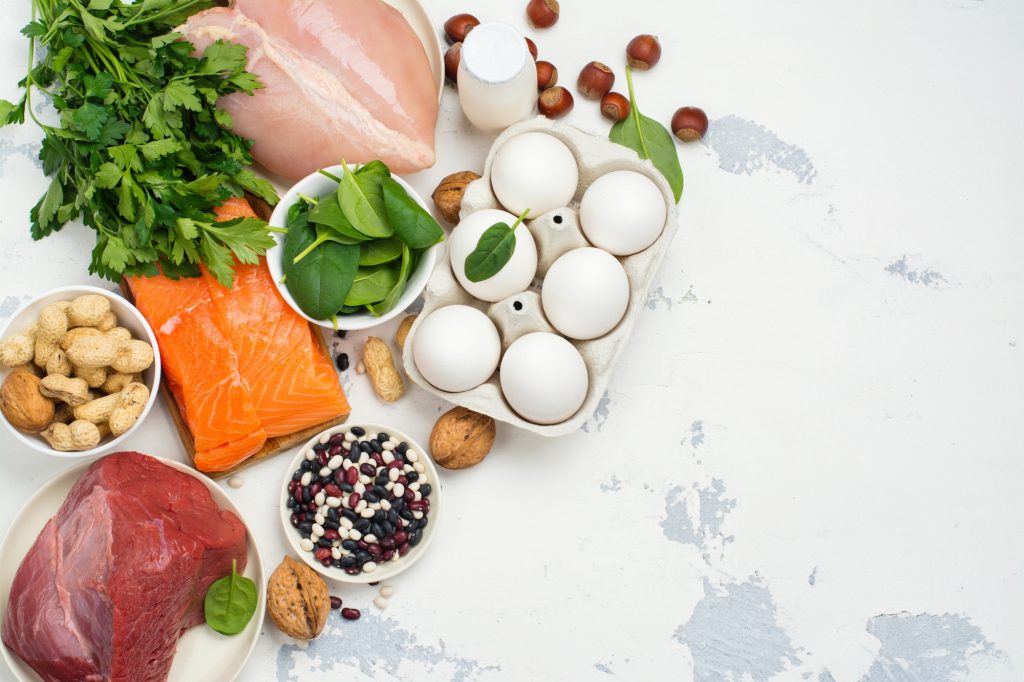Congratulations! Whether it’s your first pregnancy, second or third, these upcoming nine months are a very important phase of your life as another life grows within you.
On top of all the baby shower planning and nursery decorations, one of the most important areas to focus on is to ensure that you have a healthy lifestyle and primarily be more vigilant about your diet.
What you need is to enjoy a good amount of food that contains plenty of essential nutrients. So if you’re wondering what’s okay to eat, foods to avoid completely and whether you have to give up on your favourite foods for the upcoming nine months, check out our food safety guide below!
WHAT TO EAT?
Dairy products: Calcium is needed to support your pregnancy. A good source of calcium includes: milk, yogurt, cheese and more.

Why? Sufficient amount of calcium helps both mother and baby as the calcium that you consume will help build strong bones, muscle and nerve function of the baby.
Note: Avoid soft cheese like brie, blue-veined cheese, or Camembert because it contains listeria bacteria that could lead to listeria infection which would be fatal to pregnant women and their babies.
Protein: Throughout the pregnancy stages, the goal is to eat food that are healthy and packed with nutrients and one of it being protein. Protein rich foods include fish (best to go for fatty fish like salmon), meat, poultry, eggs, beans, tofu, milk, cheese, nuts and seeds.

Why? Protein is known as ‘the builder nutrient’ because it helps to build organs like the brain and heart for the baby.
Iron: Expectant mothers require about 27 milligrams (mg) of iron per day. Some iron rich foods are meat, fish, beans, dark leafy greens (like spinach, collard greens and kale), berries (raspberries and strawberries), kiwi and tomatoes.
Why? Your body uses iron to make extra blood for yourself and your baby during pregnancy. Apart from that, without sufficient iron in the body, it can lead to anaemia, a defect in which there’s a deficiency of red blood cells in the blood.
Vitamins and other nutrients: Fruits and vegetables are the best source of vitamins. Having a varied and balanced diet filled with fruits and veggies will give you all the nutrients you need such as Vitamin A, C, D and Folate (Vitamin B9).

Why? During pregnancy, your baby gets all the vitamins and nutrients from you for healthy growth and development.
WHAT TO AVOID?
Caffeine: Expecting mothers should limit their caffeine intake to about 200 milligrams (mg) per day, which is about two to three cups only.
Why? High caffeine intake during pregnancy can actually limit fetus growth and may result in low birth weight.
Processed foods: Fast foods and potato chips can have a long term health complications for your child.

Why? Consuming processed foods during pregnancy may increase the risk of excessive weight gain, gestational diabetes and other complications like preeclampsia as processed foods are generally high in sodium too.
Alcohol: It is best to completely avoid alcohol as well as smoking.

Why? It can cause fetal alcohol syndrome, increase the risk of miscarriage and stillbirth.
Raw fish, meat and cold cuts: If you’re a sushi lover, this may be harsh to hear, but it is best to avoid uncooked or partially cooked proteins (like fish, meat, shellfish).
Why? The risk of getting bacterial or parasite infections are high. Some of the bacteria infection may lead to adverse health issues that affect both mother and baby.

Note: Avoid large marine fish which may contain mercury. This includes shark, mackerel and tuna.
Sources: Healthline, MedicalNewsToday











